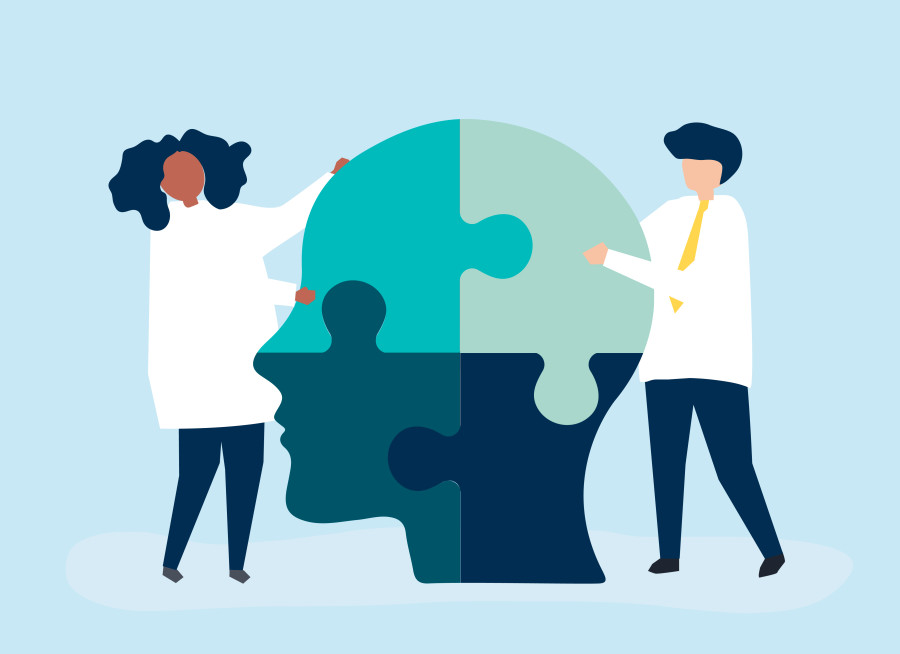Health
Panic, paranoia and anxiety: Doctors report a worrying rise in mental health patients
Increased exposure to distressing news, uncertainty and increased stressors due to the Covid-19 lockdown are prompting numerous mental health issues.
Arjun Poudel
Last week, Bimala from Sano Bharyang was taken to the Nepal Mental Hospital in Lalitpur by her in-laws after she started showing unusual behaviour. She was constantly washing her and her children’s hands, and locking the children inside their room.
“Her in-laws said that she was extremely worried about a possible coronavirus infection,” Dr Ananta Prasad Adhikari, a psychiatric consultant at Nepal Mental Hospital, told the Post.
Bimala, 31, displayed symptoms of obsessive-compulsive disorder, triggered by the ongoing Covid-19 pandemic, said Adhikari. Obsessive-compulsive disorder is when patients have unwanted and repeated thoughts, feelings and obsessions.
According to doctors at the Nepal Mental Hospital, the pandemic and the lockdown enforced to contain its spread have led to increased feelings of stress and anxiety, which can trigger latent issues, like with Bimala. Already, more patients with anxiety are visiting the hospital, said doctors.
Forty-two-year-old Anil from Sanothimi in Bhaktapur visited the Nepal Mental Hospital after not being able to sleep due to overwhelming fears of a possible infection.
“The patient was wearing several masks at once and told us that he had also put several on his children.” said Adhikari. “He was obsessed with Covid-19 news and complained about difficulties sleeping and concentrating.”
Anil too exhibited symptoms of obsessive-compulsive disorder along with clinical anxiety, according to doctors.
The Post is identifying both Bimala and Anil only by their first names in the interest of privacy.
The World Health Organization has acknowledged mental health as a very real concern during the pandemic and has suggested that people minimise watching, reading or listening to news about Covid-19 that cause feelings of anxiety or distress.
“The sudden and near-constant stream of news reports about an outbreak can cause anyone to feel worried,” reads the WHO statement. “Get the facts, not rumors and misinformation.”
The UN health agency has urged people to seek information only from trusted sources and at specific times during the day, once or twice.
Last week, the Epidemiology and Disease Control Division held a video conference with clinical psychologists and psychiatrists from major hospitals across the country, where participants reported a sudden surge in the number of patients and disruptions in the supply of medicines. They warned that if the ongoing lockdown continues, and if the mental health problems caused by the coronavirus are ignored, more issues in many more people, including persistent depression, anxiety, and panic attacks, could arise.
Even for those not prone to anxiety over the pandemic, the severe measures countries around the world have instituted to limit its spread have led to increased stresses, as many have lost their jobs or are unable to provide for their families.
Nepal has so far reported a relatively small number of Covid-19 cases—eight live cases with one recovery, but in the absence of widespread testing, there are fears that the number could be higher.
According to Dr Mita Rana, a clinical psychologist at Tribhuvan University Teaching Hospital, being fired or sent on unpaid leave has created new stressors that could manifest in a disorder.
“Rising levels of stress and uncertainty are fuelling anxiety disorders,” she said.
In order to deal with the current situation, Rana suggests that the people try to avoid stressors, refrain from engaging in unnecessary arguments with family members, and try to sort problems together.
Those already diagnosed with mental health problems are highly vulnerable to relapse and for their conditions to worsen, said doctors, especially as they are unable to engage in social activities to release stress or visit their doctors and therapists due to the lockdown.
A number of clinical psychologists as well as psychiatrists from around the country have offered online and telephone counselling. But at times, patients need in-person counseling and that is often not possible during the lockdown. In some cases, the supply of critical psychiatric drugs has even been disrupted.
Dr Phanindra Prasad Baral, chief of the Mental Health Section at the Epidemiology and Disease Control Division, conceded that patients in remote villages might have been deprived of medication due to the ongoing lockdown but that they were working to ensure supply.
“Long-term problems could arise if patients do not get their medication on time and they relapse,” said Baral.
(If you or someone you know has some concerns, please contact the following helplines.)
Dr Abhash Niraula (Birtamod): 9852064922
Dr Neekesh Rajbhandari (Biratnagar): 9851131321
Dr Madhur Basnet (Dharan): 9852056415
Dr Sirish Aryal (Janakpur): 9812073900
Dr Sailendra Raj Adhikri (Chitwan): 9855061744
Dr Neena Rai (Kathmandu): 9841335998
Dr Sagun Ballav Panta (Kathmandu): 9841444410
Dr Sandeep Subedi (Bhairahawa): 9847020023
Dr Rajan Sharma (Pokhara): 9856034600
Dr Tanveer Ahmed Khan (Nepalgunj): 9858023672




 9.93°C Kathmandu
9.93°C Kathmandu















